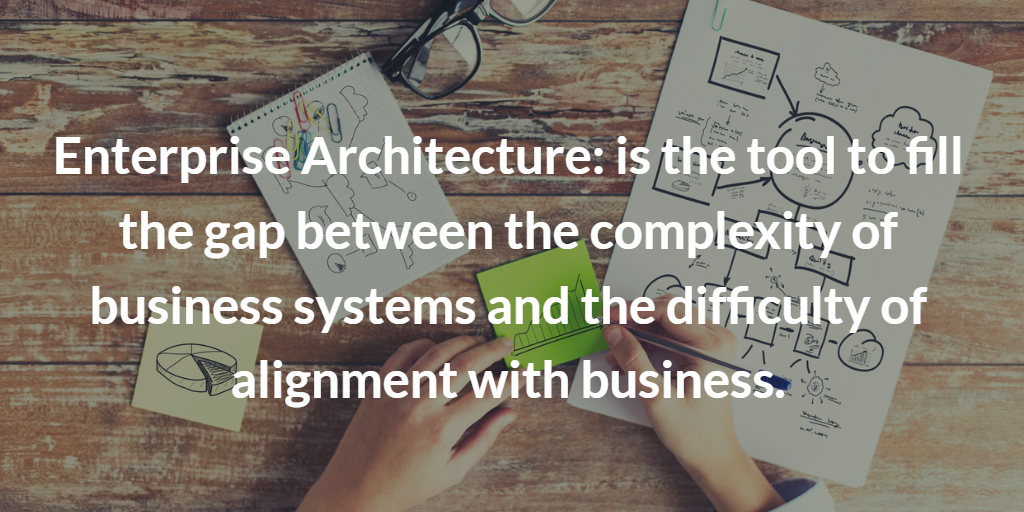Categories
Tags
Newsletter
Subscribe to the QRP International neswletter and get all the news on trends, useful contents and invitations to our upcoming events
Subscribe
Enterprise Architecture (EA) is the analysis of the overall structure of an organization, which describes its components, namely:
Using the words of The Open Group “The architecture of the enterprise allows us to determine the elements that make up the enterprise and how they are related to each other”.
The enterprise architecture provides a static picture of the company, to be able to understand it better, but also a dynamic vision, “a map” which shows the state of departure and the state of arrival and which serves to put into practice the strategies and the objectives of the enterprise in a determined temporal arc. This map, made up of requirements, guiding principles and models, serves to define how the various components of the company will evolve to reach the desired state and represents the company in its entirety.
The enterprise architecture can be defined like a holistic approach that considers all the facets that compose the enterprise, from the business to the technological aspects. Within the EA there are four different types of architecture:
History and advantages of the Enterprise Architecture: why is it increasingly important?
The concept of Enterprise Architecture is quite young: it was born in the second half of the ’80s, with the publication of the article “Framework for Information Systems Architecture” by John A. Zachman on the IBM Systems Journal. Zachman later stated that he would like to change his name to “Framework for Enterprise Architecture”, because the framework actually has nothing to do with information systems.
The article has the merit of introducing the fundamental concepts for enterprise architecture and takes into account two issues: the complexity of business systems and the difficulty of alignment with business. Those two aspects become in the years more and more important and they can’t be ignored anymore.
IT systems are becoming increasingly complex and it is becoming increasingly difficult to keep these systems in line with business needs.
Thanks to the knowledge of an organization’s architecture, it is possible to fill the gap between strategy and implementation, control operational risks and ensure the quality of processes and data.
The architecture helps to:
Nowadays many organizations still do not fully understand the importance of an architecture for their company. Many companies focus on building and operating the system, without designing the organization as a whole and having a holistic vision. Enterprise architecture operates strategically and modern organisations have the opportunity to use it as a support to the transformation of their business. Enterprise Architecture can be a strategic element for the management of the complexity of corporate architectures and their continuous transformation.